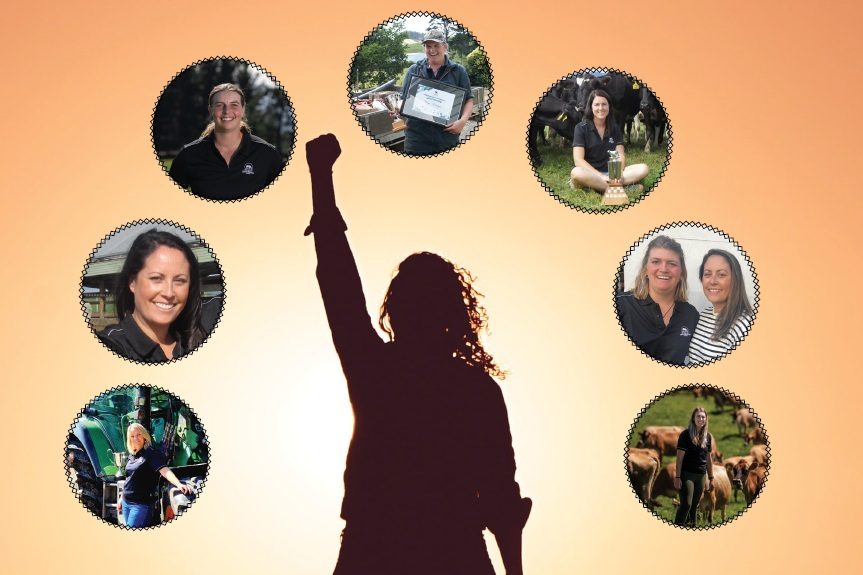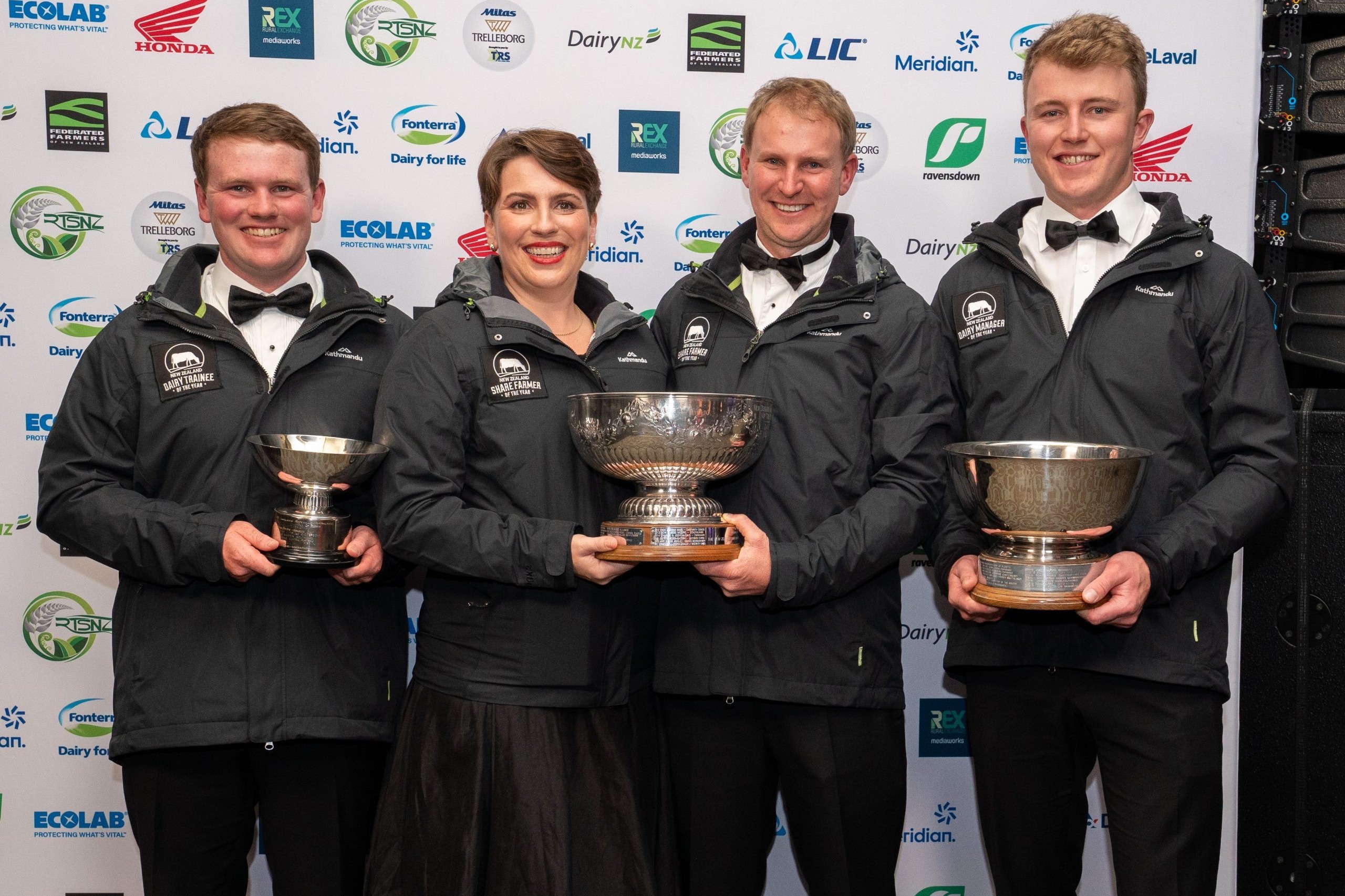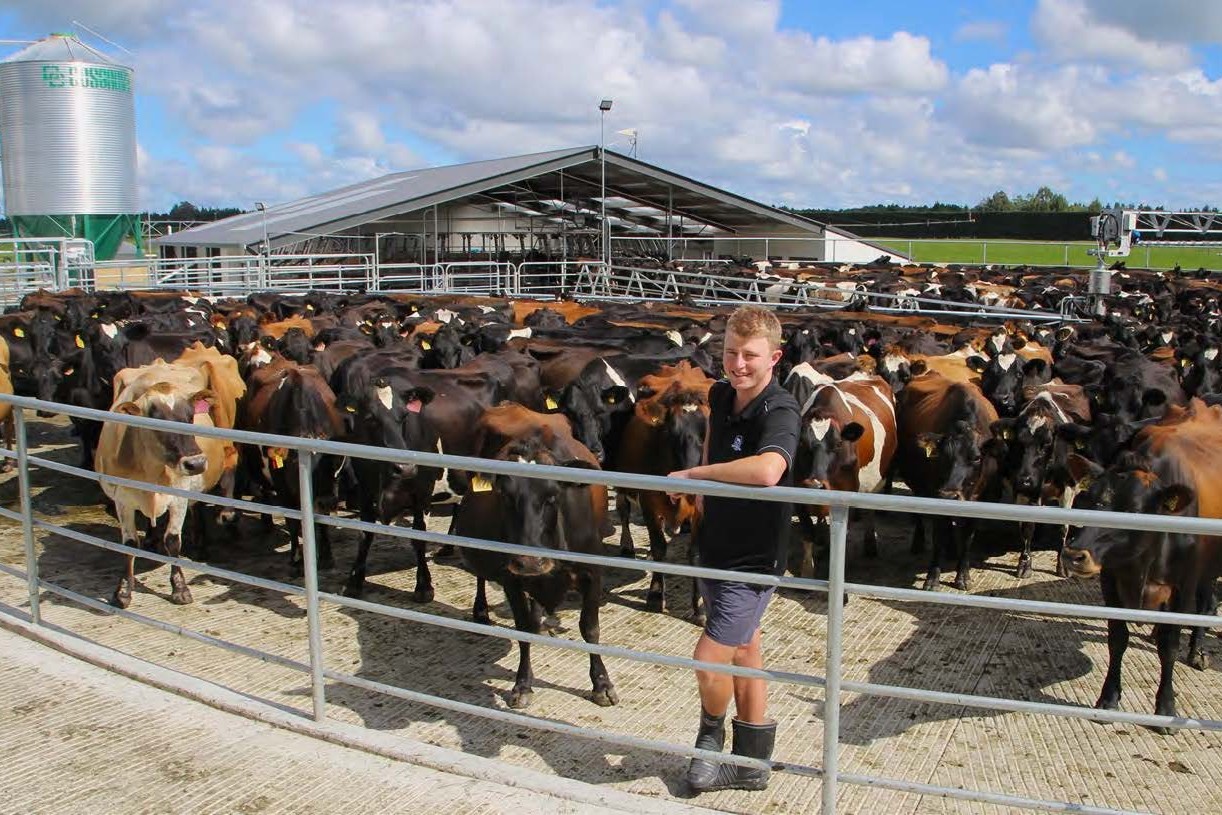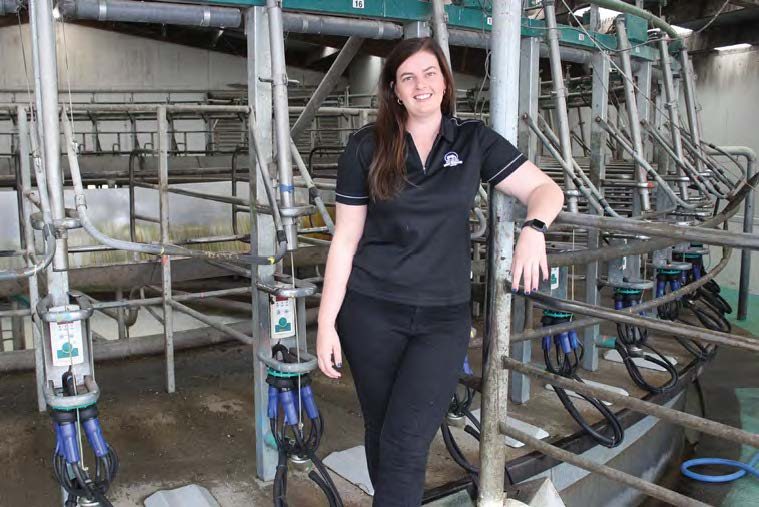Karen Trebilcock
South African Eugene de la Harpe first came to New Zealand six years ago on a family holiday to visit his parents-in-law, also from South Africa, who were sharemilking.
“We set foot in Queenstown off the plane and it was so clean and so safe and we all loved it straight away.
“We have two daughters and we knew we could not offer them this life in South Africa.”
With a dairy farming background, the civil engineer could apply for a work visa here and he hasn’t looked back.
The 36-year-old won the managers’ competition in the Southland/Otago region of the Dairy Industry Awards announced via video link on the region’s Facebook page on March 28.
After four years working for other dairy farmers, he is finishing his first season as farm manager for Robert O’Callaghan on a 200-hectare, 600-cow Dipton West property and can soon apply for NZ citizenship.
“I have to have five years working here to meet the criteria which will be the end of this season,” he said.
Although he is now single, his daughters are loving life here and doing well at school.
“They still speak Afrikaans as well as English.”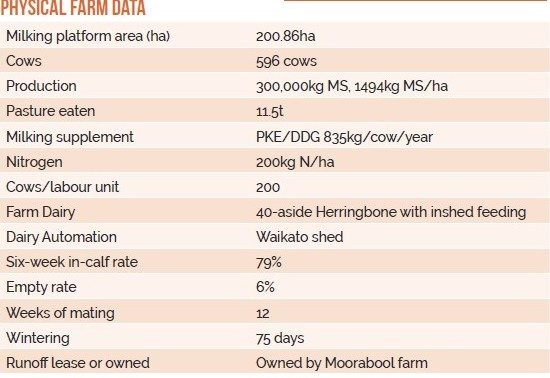
He said watching the video link announcing his win didn’t have “the adrenaline rush” it would have had if the awards had gone ahead as normal and he’d had his staff and employer with him.
“It was still a great experience and I have met heaps of people through the awards with a passion for dairy farming.”
Eugene believes in feeding cows well and the farm budget includes 835kg per cow of palm kernel and dried distillers grain (DDG).
“We are still grass farmers but we pump in the palm kernel and DDG when we need to such as in the second round after they have cleaned up the winter grass still on the farm in that first round.
“Feeding is the most important thing to me. If you feed your cows well then their cow condition is good, their production is good, the animal health is good. They cycle better, calving is better – it’s everything.”
His six-week in-calf rate of 79% and an empty rate of just 6% proves it.
“If you feed cows correctly then you save money on everything else. A fat cow is a happy cow.”
Although he knows most dairy farm managers in NZ go on to become contract and sharemilkers moving from farm to farm, he is happy to stay put and stay a manager.
“I’ve looked at the numbers and being a manager works well.
“Some contract milkers are really battling in Southland this year, especially with the floods earlier.
“Being on a family orientated farm is important to me and staying with people who I know and know me.”
The farm owner is allowing him to raise his own calves which one day will be milked in the herd, enabling him to build an asset of his own within the farm system.
“He’s going to lease them back from me and that way I can build my own herd.”
Eugene has two staff which means he can continue as normal under the government’s Covid-19 Alert Level 4 rules but he has had to let his relief milkers go.
Employing teenage relief milkers, still at high school, to show them what dairying is like, is something he has enjoyed this season.
“Especially the ones from sheep farms. When they leave I ask them whether they want to go work with their fathers or work on dairy farms and they have all said they want to now work on dairy farms.”
With only manual drafting and no cup removers, he keeps his milking procedures simple and said anyone could walk into his dairy, follow the instructions on the wall and milk the cows.
“And I like the dairy kept clean. When you wake up in the morning and walk into the dairy and it’s dirty it’s not a good way to start the day.
“I like positive people and that’s one way we do it.
“I want the farm to be people friendly – keep it clean and keep it practical.”
It has also kept the farm, so far, grade free for the season.
Although his training is as a civil engineer, another sought-after skill for immigrants to NZ, he does not want to go back to it.
“It was something I did in South Africa because, growing up in the Free State, farming was impossible to do. But I always wanted to somehow go back to farming.”
Runners-up in the Dairy Manager category went to Gonzalo Bascur from Invercargill, third place was Carol Booth from Tapanui.
Dairy manager merit awards:
Landpro Most Promising Entrant – Cole Henwood
Shand Thomson Encouragement Award – Kayleigh Cleary
McIntyre Dick and Partners Employee Engagement Award – Gonzalo Bascur
FMG Leadership Award – Carol Booth
Vetsouth Feed Management Award – Eugene de la Harpe
DeLaval Livestock Management Award – Carol Booth
Fonterra Dairy Management Award – Eugene de la Harpe
PrimaryITO Power Play Award – Eugene de la Harpe
Westpac Personal Planning and Financial Management Award – Gonzalo Bascur


